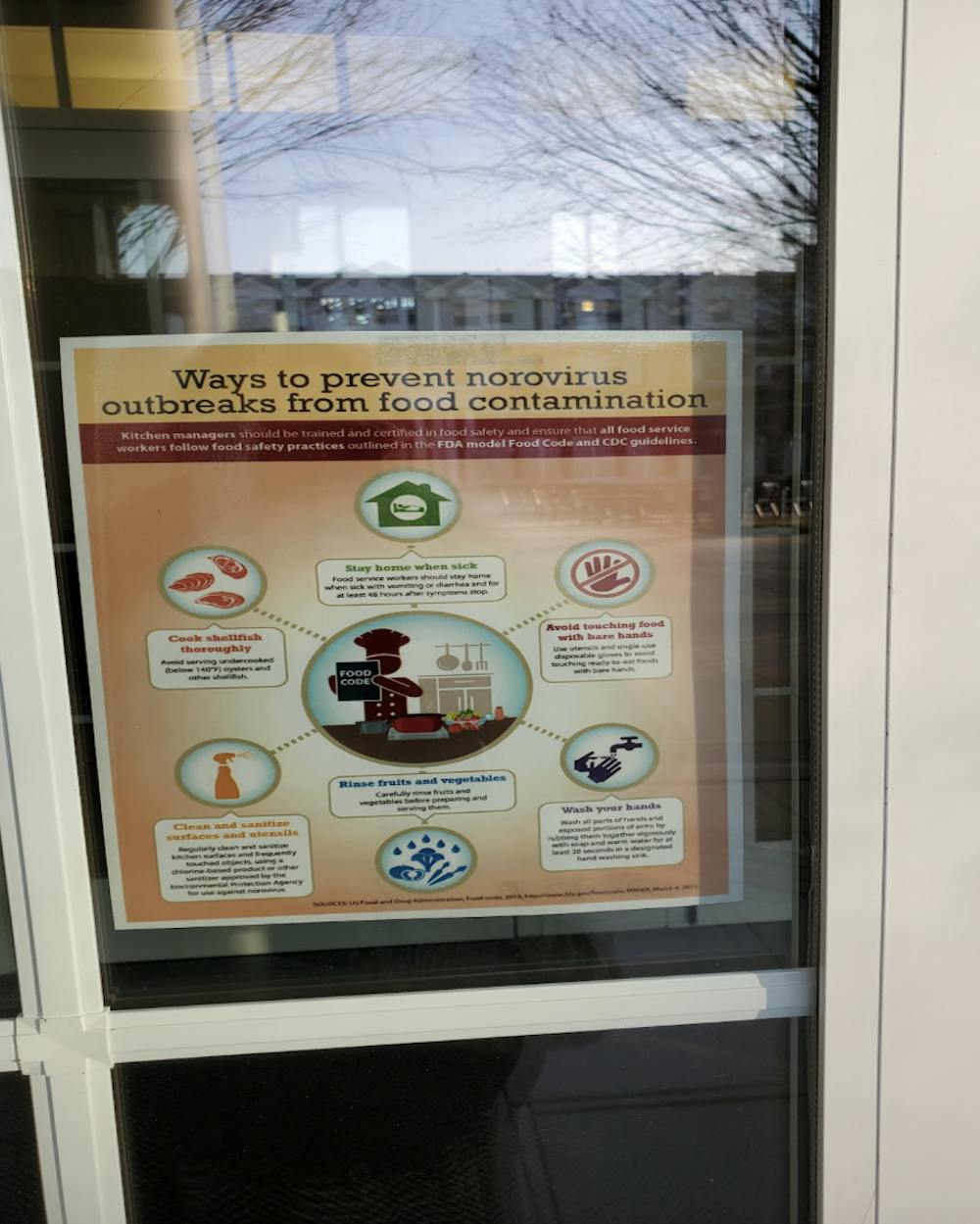By Catherine Gonzalez
Staff Writer
Janice Vermeychuk, the director of Student Health Services at the College, sent out a health advisory on Feb. 24 to students regarding the recent increase in gastrointestinal illnesses on campus and how to prevent contracting norovirus.
“We sent out prevention-information because, although norovirus is seen year-round, there is a seasonal increase in cases during the winter months of November through March,” Vermeychuk told The Signal. “The news is telling us that norovirus is particularly prominent in the U.S., but we are not seeing that so far.”
At present, norovirus has not been confirmed on campus by the health office.
Some students report awareness about illness on campus, though not necessarily gastrointestinal illnesses.
“I’ve been hearing a lot of rumors about the flu season coming in,” said M.G. Roach, a sophomore graphic design major.
Some students see less serious illnesses circulating around campus.
“There have been people coughing a little more than they usually do, but I haven’t seen a lot of people get really sick,” said freshman psychology major Ohm Patel.
The Health Office determines what illnesses are on campus based on the symptoms exhibited by students who visit them.
“We confirm what illnesses are on campus by looking for trends in the patients that we are evaluating in the office, by clinical judgment and diagnostic testing,” Vermeychuk said.
Vermeychuk provides a plethora of advice on how best to avoid gastrointestinal illnesses and norovirus, should the latter come onto campus. One of her biggest tips is to practice conscientious sanitization habits.
“First, know when and how to wash your hands: this means using soap and water for at least 20 seconds. You should also keep your hands away from your mouth unless you have just washed them with soap and water because norovirus is ingested and can live on surfaces for up to 4 weeks,” Vermeychuk said. “Don’t rely on hand sanitizer because it is not effective against norovirus, but hand sanitizers with at least 60% alcohol are effective in reducing other viruses and bacteria on the skin when soap and water is not available. Finally, use disinfectants to clean surfaces that are effective against norovirus (which you can tell by checking the label).”
Vermeychuk also shares an infographic detailing when students should wash their hands and how effective hand-washing occurs.
Students who become ill with the norovirus or another gastrointestinal illness should continue to practice these sanitization habits and self-isolate.
“Once you get norovirus, all you can do is stay home, let the virus run its course, and try to protect people around you from getting sick, as you are very contagious,” Vermeychuk said. “Be sure to wash your hands with soap often and clean & disinfect surfaces to prevent transmission of norovirus to others.”
Sick students can regain their health again by gradually returning to a regular diet.
“It is important to replace the fluids you lose to prevent dehydration but go slow with sips of water or ice chips every 2-10 minutes,” Vermeychuk said. “Once symptoms have subsided and appetite has returned, start with simple carbs like crachers, toast, clear soups, plain pasta and white rice.”
The College also offers support for ill residential students.
Vemeychuk said, “If you live on campus, take advantage of Sodexo's sick tray program: https://tcnj.sodexomyway.com/other-offers/sick-tray.”
Students who have any health-related concerns can contact the College’s Student Health Services by email (health@tcnj.edu), phone (609-771-2889) or scheduling a Zoom appointment through OWL (https://tcnj.medicatconnect.com/).







